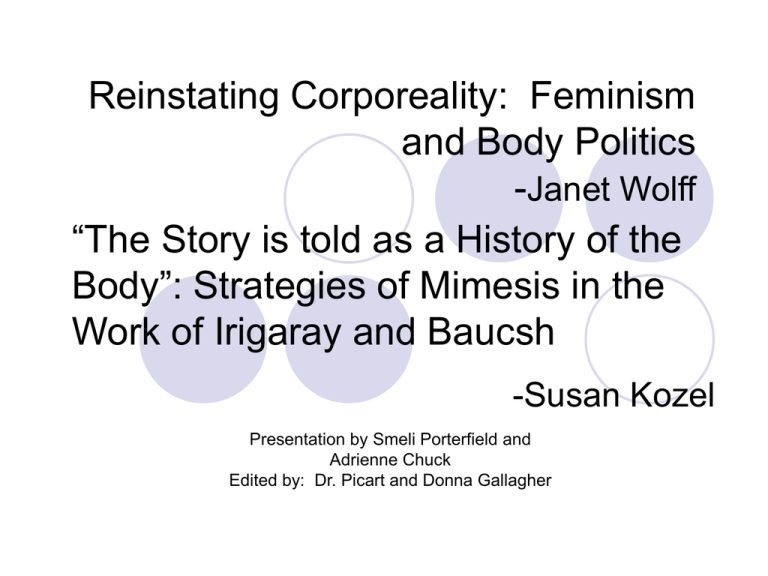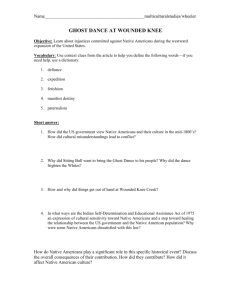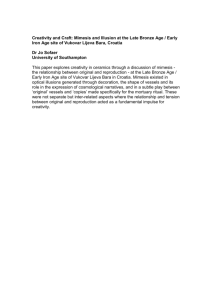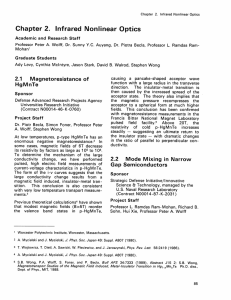Reinstating_Corporeality_se
advertisement

Reinstating Corporeality: Feminism and Body Politics -Janet Wolff “The Story is told as a History of the Body”: Strategies of Mimesis in the Work of Irigaray and Baucsh -Susan Kozel Presentation by Smeli Porterfield and Adrienne Chuck Edited by: Dr. Picart and Donna Gallagher What to Look Forward to (Aims): Exploration of Wolff’s article Explanation of how the body relates to society Discussion pertaining to the views society holds on the body Relating the relationship between society and the body to dance Key Words and Phrases: Corporeality: Feminism: Body Politics: What Wolff Does: Discusses body politics as related to the way women are viewed. Questions if the female body can be used for cultural protest. Relates body politics to dance. Current Ideas/Views of the Body: Buñuel’s The Phantom of Liberty Manners These apply to every body. Discussion Question: What are other examples of ways we utilize our bodies or bodily functions that are shunned by society? Why? “Classical Body” vs. “Grotesque Body” Discussion Questions: How is the female body, in particular, viewed in society? What are common norms we associate with things that are “feminine”? Defiance! Wolff asks her own discussion question: “What happens when the female body is affirmed and displayed, in defiance of the dominant “perfect body,” acknowledging the reality of actual women, the diversities of shape and size, the functions of corporeal existence (eating, excreting, menstruation, sex, pregnancy, aging, illness)? Discussion Question: What do we see portrayed in dance (namely, ballet), the “classical” or the “grotesque” body? Question: Can you think of any examples of any medium which uses the “grotesque” body type? Concluding Question: Will breaking away from the constant use of the “perfect body” in dance (and other arts) help to dissolve the ideologies regarding the female body in our culture? What to Look Forward to (Aims): Exploration of Kozel’s article A look into mimesis Elements of mimetic strategy Brief discussion of duality A look at both Irigaray and Bausch Key Words and Phrases: MimesisDuality- Time, space, fluidity, and desire as they relate to mimesis Question: If a dance or a painting does not imitate and resemble nature or life, is it not as beautiful as those that do? Question: Is it absolutely necessary to obtain the negative to get to the positive and vice versa? Why? Question: What does Lacan’s theory remind you of? (Here’s a hint: away!) -that should give it





